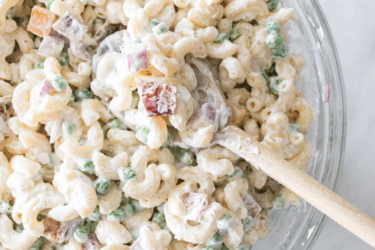 We’ve all heard the statements “breastfeeding is beautiful” and “babies are born to breastfeed,” but for many new moms, breastfeeding is not beautiful but rather exhausting, emotional, frustrating and even lonely. I have breastfed three children, and not once did the angelic choir sing for me or my face glow white in the beauty of what I was doing. However, breastfeeding is definitely amazing, and it is the natural way for new mothers to feed their babies.
We’ve all heard the statements “breastfeeding is beautiful” and “babies are born to breastfeed,” but for many new moms, breastfeeding is not beautiful but rather exhausting, emotional, frustrating and even lonely. I have breastfed three children, and not once did the angelic choir sing for me or my face glow white in the beauty of what I was doing. However, breastfeeding is definitely amazing, and it is the natural way for new mothers to feed their babies.
When we first find out we’re expecting, we immediately purchase the What to Expect When You’re Expecting book (Workman; $24.95) along with the cutest pair of maternity jeans, and we begin making a list of registry items we must have. When do we think about preparing for breastfeeding? Most of my research tells me if new mothers prepare at all it comes in the form of a two-hour class at their local hospitals. Please hear me now: This is not enough! Below are some ways to prepare before the baby comes for a successful breast-feeding experience.
1) Determine your definition of “successful breast-feeding experience.” I was determined not to give formula to any of my three children. I did lower my expectations for my second and third child because they were twins. I breastfed my oldest child for 18 months; my twins are now 11 months, and I am nursing them three times daily. Also for the twins, I knew we could not afford the kind of formula I would want for them, so I had the added resolve from a financial standpoint. Your successful breast-feeding experience might be exclusively breastfeeding until 6 months and complete weaning at 12 months. Your friends or sister might define this differently. Regardless, defining it for yourself helps keep you focused and motivated when you hit low or stressful points, especially in the first few weeks.
2) Build a list of names of local experts to be on your team. This list should include a doula who can make house visits if needed. Also on your list might be the breast-feeding class instructor at your hospital, a friend who has successfully breastfed, your mom or sister (to tell you how awesome you are and what a great job you are doing) and a Le Leche League representative in your area.
3) Go ahead and purchase a breast-feeding book ahead of time. Don’t wait until after the baby comes and you have questions that can’t be readily answered at that point. I needed a breast-feeding book for multiples and had to locate one, then pay overnight shipping because I needed it so badly.
4) Before delivery, review support groups and online information. There is a lot of help out there for new moms! I did not know how much help there was until I began helping others have a successful breast-feeding experience. There are hotlines, online chats, articles on how dads can help, local leaders who offer weekly or monthly meetings and much more. Find this information before the baby comes and have it at your fingertips when the time comes.
5) Buy some supplies and have them ready before the baby arrives. I could not have had a successful breast-feeding experience without my electric, double pump. I pump and store milk, so I keep the freezer bags handy. In addition, I researched and chose bottles that had nipples as natural as possible but used bottles rarely. Bottles are not recommended until breastfeeding is completely established – the associated time frame is usually four to six weeks.
Newly expectant moms should begin thinking about breastfeeding well before the baby arrives to increase the likelihood of a successful experience. Make sure your breast-feeding wishes are included in your birth plan or communicated to your doctor and nurse. If at all possible, try to breastfeed your baby during the first hour after delivery. Also, alert the nursery staff so they won’t give your baby bottles or pacifiers in the nursery. Most hospitals have a lactation consultant on staff and some have multiple ones. They may automatically visit your room or you may have to request a visit. It is important to talk with this person, have her help you with your first few feedings and see her before you go home for last-minute encouragement. This is also a good time to jot down her phone number and get copies of material she’s prepared for you.
Breastfeeding is the natural and best way to transfer nutrition and immunity properties to your baby. It also promotes healing for you, might help you lose weight more quickly and might also decrease your risk for breast cancer. I do hope the angelic choir sings and your face glows white with the beauty of what you are doing. But if neither happens, know you are doing what is best for your baby and with the resources out there and being prepared before the baby comes you have every reason to expect a successful breast-feeding experience!
Julie Hamilton is an author and speaker on breastfeeding. She successfully breastfed three children including twins who now 11 months old.




